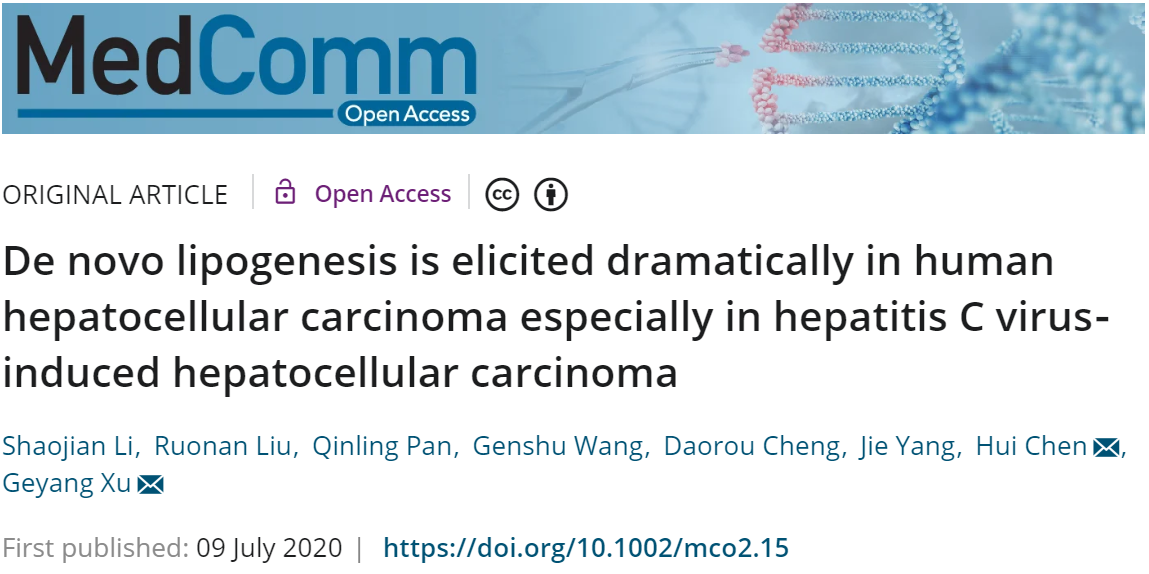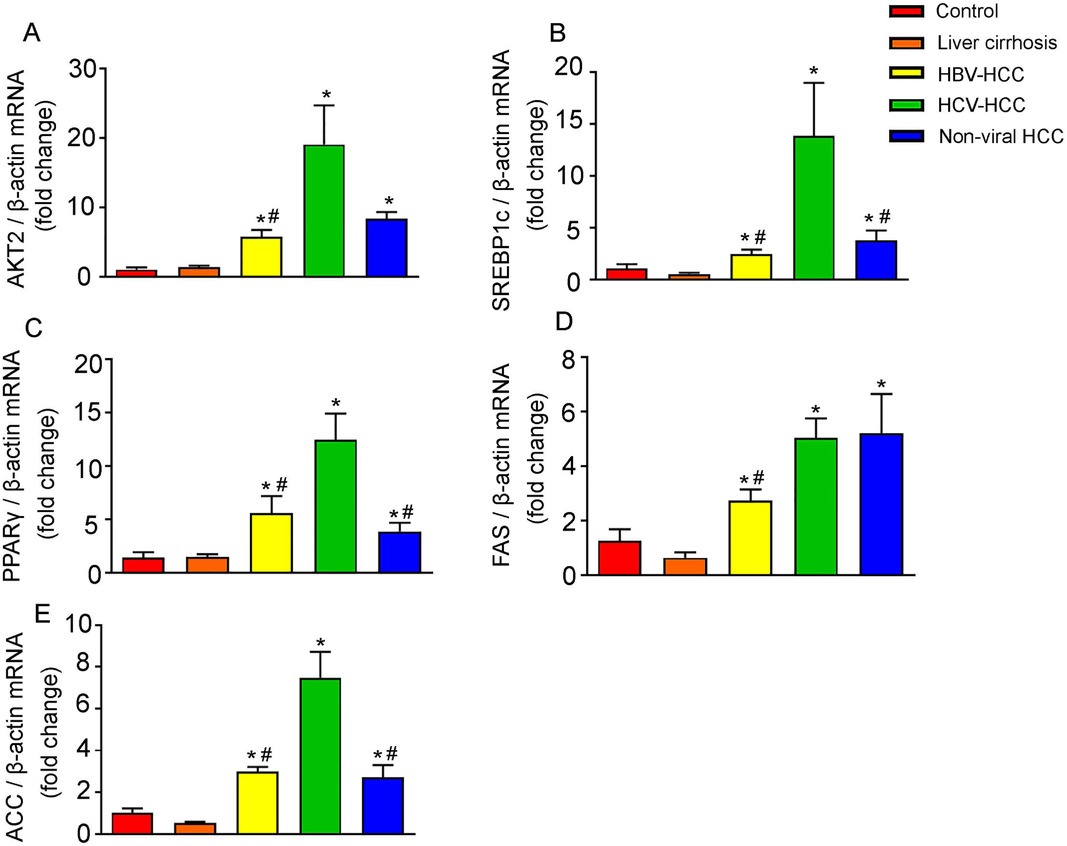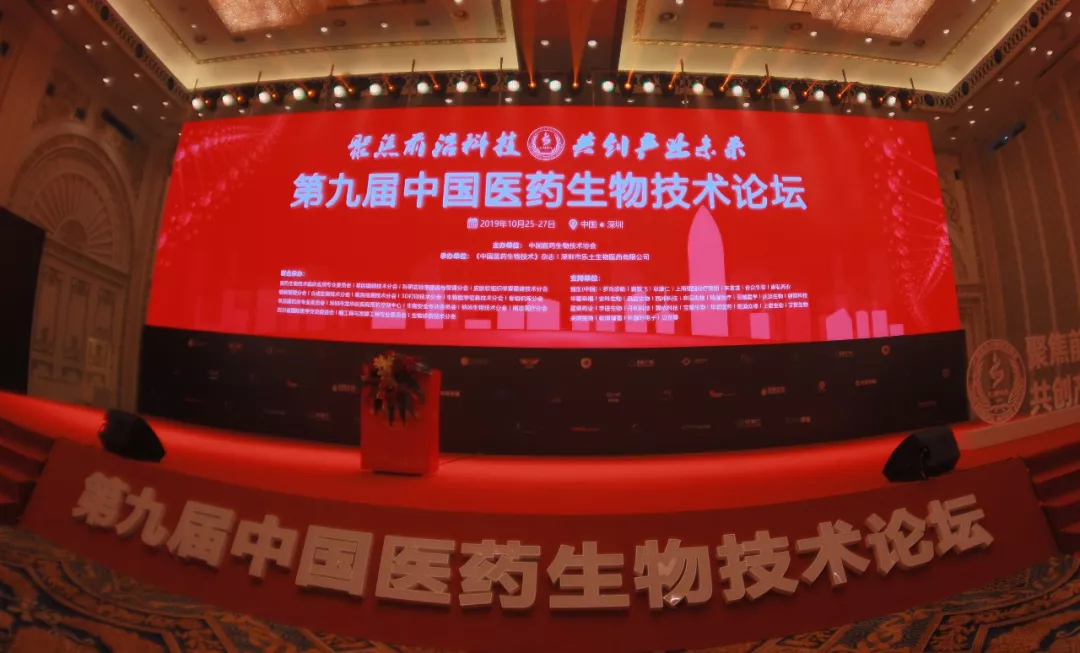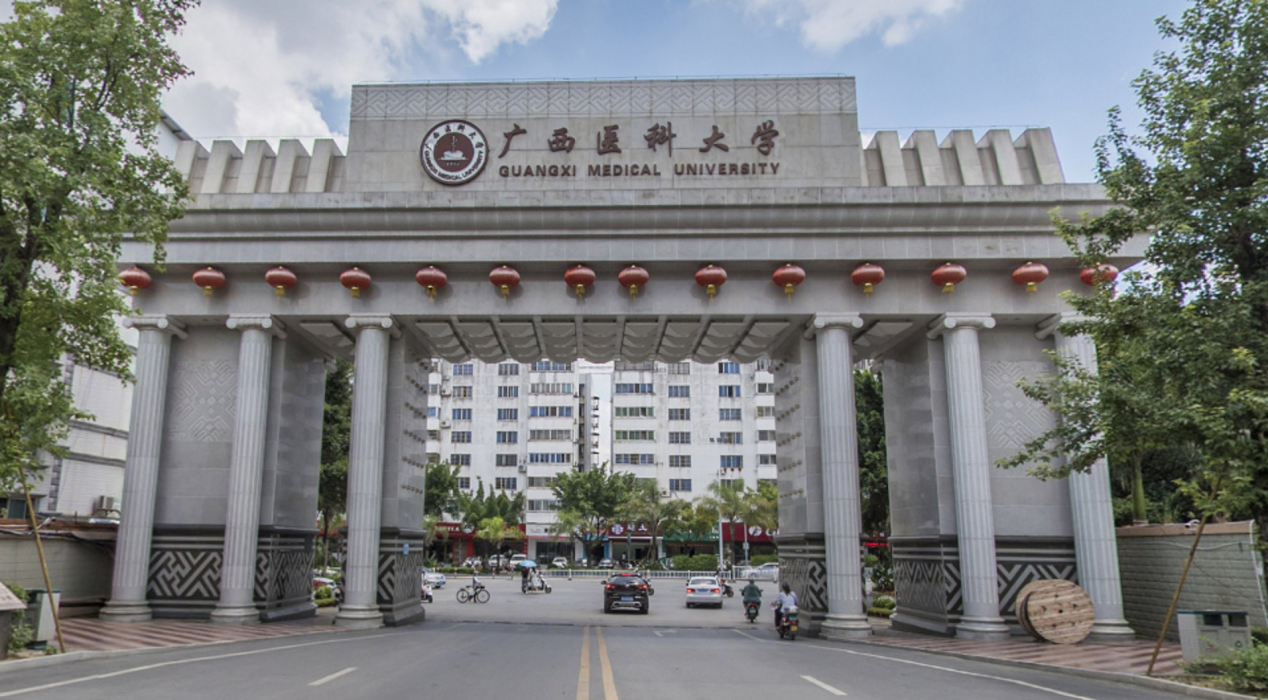Hepatocellular carcinoma (HCC) is the third leading cause of cancer deaths worldwide, which has drew much attention of researchers. Notably, it has been proved that, in the process of hepatocarcinogenesis, abnormal de novo lipogenesis might play a integral role. Here, Geyang Xu et al examined the key lipogenic transcription factors and enzymes in human control livers, cirrhotic livers, viral HCC, and nonviral HCC. The correlation between lipogenic pathway activation and overall survival (OS) of HCC patients with different etiologies was also investigated.

In the present study, de novo lipogenesis and its association with patient survival rate were investigated in human HCC samples induced by hepatitis B virus (HBV), hepatitis C virus (HCV), or nonviral factors, as well as hepatic mRNA and protein levels of lipogenic transcription factors and lipid synthesis enzymes, which were examined by realtime‐PCR (RT‐PCR) and western blot. Furthermore, lipogenic pathway regulators such as AKT2, SREBP1c, PPARγ, and lipogenic enzymes such as ACC and FAS were increased in human HCC when compared with control livers.
Notably, ACC, SREBP1c, and PPARγ were more dramatically upregulated in HCV‐HCC compared to HBV‐HCC and nonviral HCC (Fig. 1), which means a more robust increase in de novo lipogenesis in HCV‐HCC when compared to HBV‐HCC and nonviral HCC.

Fig. 1 Quantitative reverse transcription polymerase chain reaction analysis of lipogenic proteins in human control livers, cirrhotic livers, and HCC tissues.
High FAS and ACC expression correlated with poor overall survival (OS) in HCV‐HCC. High expression of lipogenesis gene panel significantly correlated with poor OS in HCV‐HCC, but not in HBV‐HCC or nonviral HCC. In sum, de novo lipogenesis is stimulated dramatically in human HCC especially in HCV‐HCC.
Article Access: https://onlinelibrary.wiley.com/doi/10.1002/mco2.15
Website for MedComm: https://onlinelibrary.wiley.com/journal/26882663
Looking forward to your contributions.







